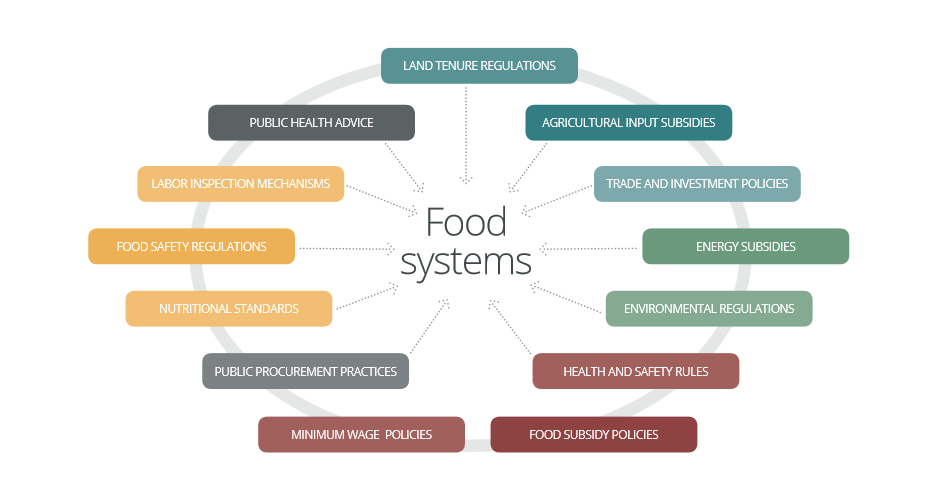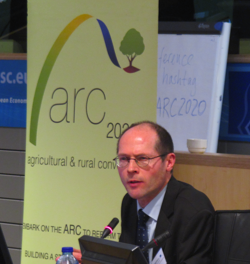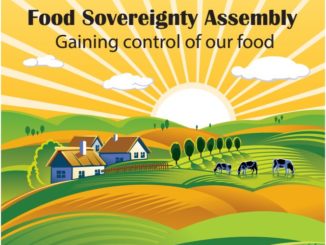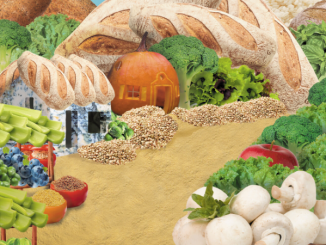In an exciting development, the International Panel of Experts on Sustainable Food Systems (IPES-Food) has adopted a set of 10 principles to guide the transition to sustainable food systems. This builds upon their May 2015 publication and first report The New Science of Sustainable Food Systems: Overcoming Barriers to Food Systems Reform.

Launching the 10 principles earlier this week, IPES-Food co-chairs Olivier De Schutter and Olivia Yambi said: “The shift to sustainable food systems is urgently needed. But this urgency must not lead us to rush headlong into solutions that resolve one problem while worsening another.”

“We must think in terms of food systems as a whole, paying attention to the dynamics and power relations underpinning them, and seeking systemic levers of change.”
The 10 principles include 5 principles to shape the sustainable food systems of the future, and 5 principles for the types of knowledge and analysis that are required to support this transition.
A truncated version of the ten principles is below
Holistic & systemic. Hunger, obesity, environmental degradation, biodiversity loss, the pressures on smallholder livelihoods, cultural erosion, workforce exploitation and other problems in food systems are deeply inter-connected.
Power-sensitive. Analysis of food systems must not ignore the differential power of actors to influence decision-making and to set the terms of debate for reform
Transdisciplinary. Knowledge must be co-produced with farmers, food industry workers, consumers, entrepreneurs, and other social actors and movements who hold unique understanding of food systems
Critically engaged. Producer organizations, retailers and other actors in food chains must be fully engaged in defining and developing sustainable food systems
Independent. Science and knowledge cannot be made to fit within the parameters set by dominant actors
Sustainable in all dimensions. Sustainability must be the benchmark of food systems reform, and must include environmental, health, social, cultural and economic dimensions. Sustainable food systems must deliver diets that are nutritious, affordable and culturally acceptable, and must provide food security without compromising the ability of future generations to do so
Diverse & resilient. Food systems must be fundamentally reoriented around principles of diversity, multi-functionality and resilience.
Democratic & empowering. Decision-making in food systems must be democratized in ways that empower disadvantaged actors and help to realize the human rights of all, including the right to food
Socially & technologically innovative. The transition to sustainable food systems requires complex and holistic change processes in which social innovation plays as big a role as technological innovation, and extends to food distribution and retail practices, as well as modes of production.
Adequately measured. New indicators of progress must be developed in order to capture the benefits of equitable, resilient, diverse, nutrient-rich food systems in ways that productivity growth, net calorie availability and other existing measures do not.
These ten principles are distilled from their first report, published in May 2015. This focused on The challenge “to produce a joined-up picture of food systems and their political economy, and to do so in ways that reach across the scientific disciplines, and reach beyond the traditional bounds of the scientific community.”
The report points out that “initiatives at the science-policy interface have struggled to capture the totality of food systems”: “sustainable intensification” and “food security” are signalled out as two. A more holistic approach, one engaging political economy and practitioners, all the while encompassing a broad approach to sustainability is emphasised:
Sustainability must also be defined in all of its dimensions, in line with the emerging definition of sustainable diets that are: protective and respectful of biodiversity and ecosystems, with optimal use of natural and human resources supportive of food and nutrition security culturally acceptable accessible, economically fair and affordable nutritionally adequate, safe and healthy, for present and future generations.
We in ARC2020 find much of this exciting. This approach to sustainability chimes especially well with the idea of Food Sovereignty, which we have covered extensively. And the thinking, as outlined in the ten principles and the report on sustainable food systems, the areas of emphasis and consideration, the priorities, is very much in harmony with our approach to agroecology and our roadmap for agri-food policy towards 2020.





